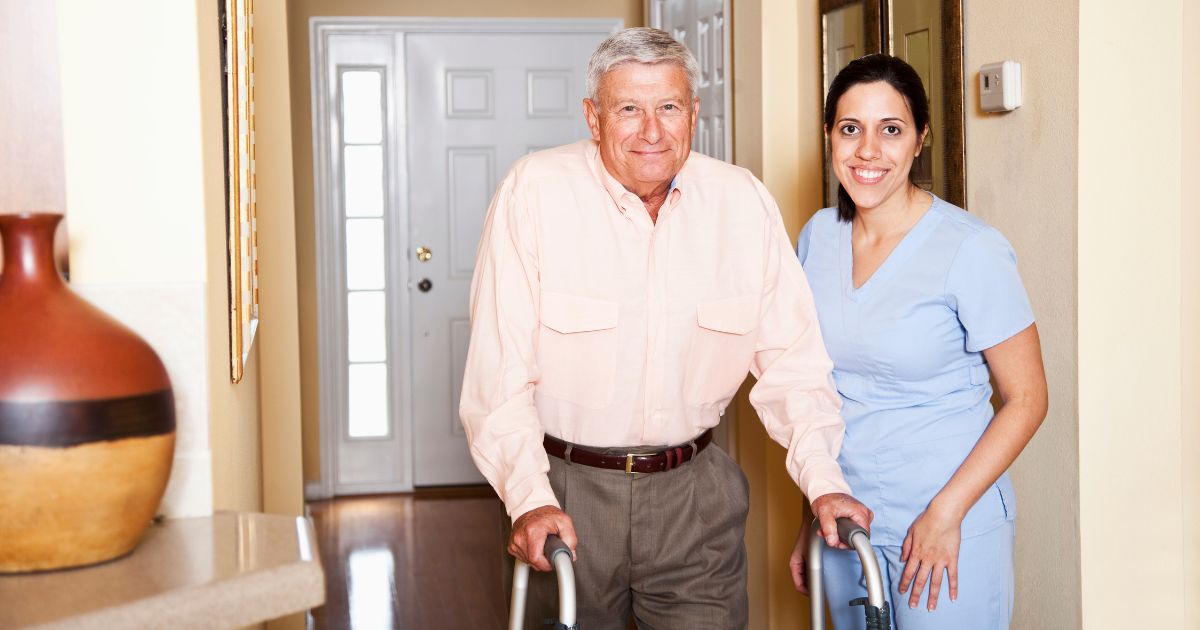There are several types of senior home care companion choices available.
Home health aides are one type of senior home care. Personal care aides provide more hands-on assistance than in-home caregivers. These aides can be a wonderful asset for seniors and their families. Some types of senior home care include:
Part-Time In-Home Companion Care
In-home companion care providers offer social and emotional support. Seniors often face social isolation which can result in depression because they lack adult children to interact with. A personal companion can provide that emotional support and draw out meaningful conversations with a client.
Moreover, they can provide companionship and encourage exercise and nutritional food choices. This is an excellent option for those who cannot manage or don’t require a caregiver. It can also help seniors avoid social isolation while remaining in familiar surroundings.
The following are some of the benefits of companion care.
Companion care can include physical assistance and house cleaning. It can also involve helping seniors with grocery shopping, house cleaning, transportation to appointments, and other tasks that support their independence.
These tasks should provide the senior with time to spend with friends and family members while maintaining a superior quality of life. In some instances, companion care may be a good short-term option for those with dementia when a primary caregiver needs some rest from his or her duties.
Live-in Home Health Aides
Many families today are choosing home health aides for seniors as companion care options. A health aide can do everything from reminding your loved one to take his or her medications to keep track of visitors. Having a professional aide in your home can give you and your family peace of mind. In addition, having a professional health aide at home will allow you to maintain your independence.
Many people suffer from social isolation. This can be particularly difficult for a senior who has a chronic illness or disability and may not have any close friends or relatives nearby to help. A home health aide can help to fill that void. By sharing hobbies and activities, home health aides can make a world of difference to a senior’s quality of life.
Personal Care Aides
The most obvious difference between personal care aides and live-in caregivers is that an aide takes the same amount of time for both. While live-in care and split-shift care are essentially the same things, they are not the same. Personal care aides provide companionship for the same period as their live-in counterparts, and their duties may include household tasks such as cleaning, bathing, and preparing meals.
Companion care includes both physical and emotional assistance. In addition to helping with everyday activities, aides can also provide light housekeeping, grocery shopping, and other chores that promote independence. While these services are not a substitute for live-in care, they do offer relief to caregivers who need it most.
Companion care can improve a senior’s quality of life and reduce their feelings of isolation.
Mazaltov Home Care Skilled Nursing
The nurse-certified caregivers of Mazaltov Caregivers offer a wide range of healthcare services. They are carefully screened and undergo annual skills training and validation checks. The nurses are also licensed to renew prescriptions and provide supplemental oxygen, and they may be able to recommend accessibility equipment, such as wheelchair ramps and raised toilet seats. In addition, caregivers may be able to assist seniors with light housekeeping tasks, as well as errands and meal preparation.
Whether a senior is unable to travel on their own or requires 24-hour supervision, Mazaltov Caregivers will provide a companion to visit and help them with daily activities. The company is also capable of providing nursing services for complex medical conditions. A home health senior home care caregiver can keep track of a client’s medical history and record the progress of any disease.
Today technology makes it easier for caregivers to communicate with medical providers, family, and other caregivers.



